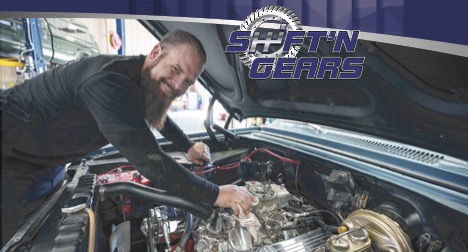Today, we’re diving into a topic that might seem mundane but is crucial for every vehicle owner: MOTOR OIL!You’ve probably seen those colorful bottles lining the shelves at your local auto parts store, but what’s the real difference between conventional and synthetic oils? DISCLAIMER — You should always use the manufacturer-recommended oil type and weight. Your vehicle was specifically designed for what is recommended.
Conventional Oil: Crude oil goes through a refining process. Due to its natural origin, conventional oil can vary in quality and performance depending on the source of the crude oil and the refining process. The oil is boiled so the elements are separated and can be extracted. Solvents are added to improve stability and performance, among other things. Then it’s blended with various additives to enhance its performance. These additives can include:
- Detergents: Preventing the buildup of deposits.
- Dispersants: Keeping tiny particles suspended in the oil to prevent sludge formation.
- Antioxidants: Preventing oxidation and breakdown.
- Viscosity Modifiers: Ensuring the oil remains effective across a wide range of temperatures.
- Anti-wear Agents: Providing an extra layer of protection for engine components.
Conventional oil tends to break down faster, which leads to more frequent oil changes. It breaks down faster because of the erratic molecular structure and added refining agents depleting faster. Those added agents and chemical mixture are crucial for engine protection and function.
Synthetic Oil: Synthetic oil is crafted through a meticulous process of chemical synthesis, purification, and blending with advanced additives listed above and then some, that provide better lubrication, superior stability, oxidation resistance, longer additive retention, improved wear protection, enhanced fuel efficiency, environmental benefits, and engine cleanliness. These benefits are required for most of your modern cars to operate smoothly.
Can you switch oil types?
In older engines and vehicles, a conventional oil system has most likely built up a seal of sludge deposits that were helping to seal small gaps. Switching could potentially lead to minor oil leaks because older gaskets and seals might not be compatible in their current state with the superior cleaning properties of synthetic oils. If you are wanting to switch from conventional to synthetic, consult your local experts as your specific vehicle might not be fully compatible, and there is a specific process that needs to be adhered to. Most of the time, switching from conventional to synthetic will be beneficial, but going from synthetic to conventional is not recommended for any reason.
PASO ROBLES PRESS MAGAZINE
Copies of Paso Robles Press Magazine are directly delivered to 23,000 readers in zip codes 93446, 93451, and 93465 and 2,000 dropped with support from advertisers and subscribers. Together, we are Making Communities Better Through Print.™
To subscribe or advertise, click here.














